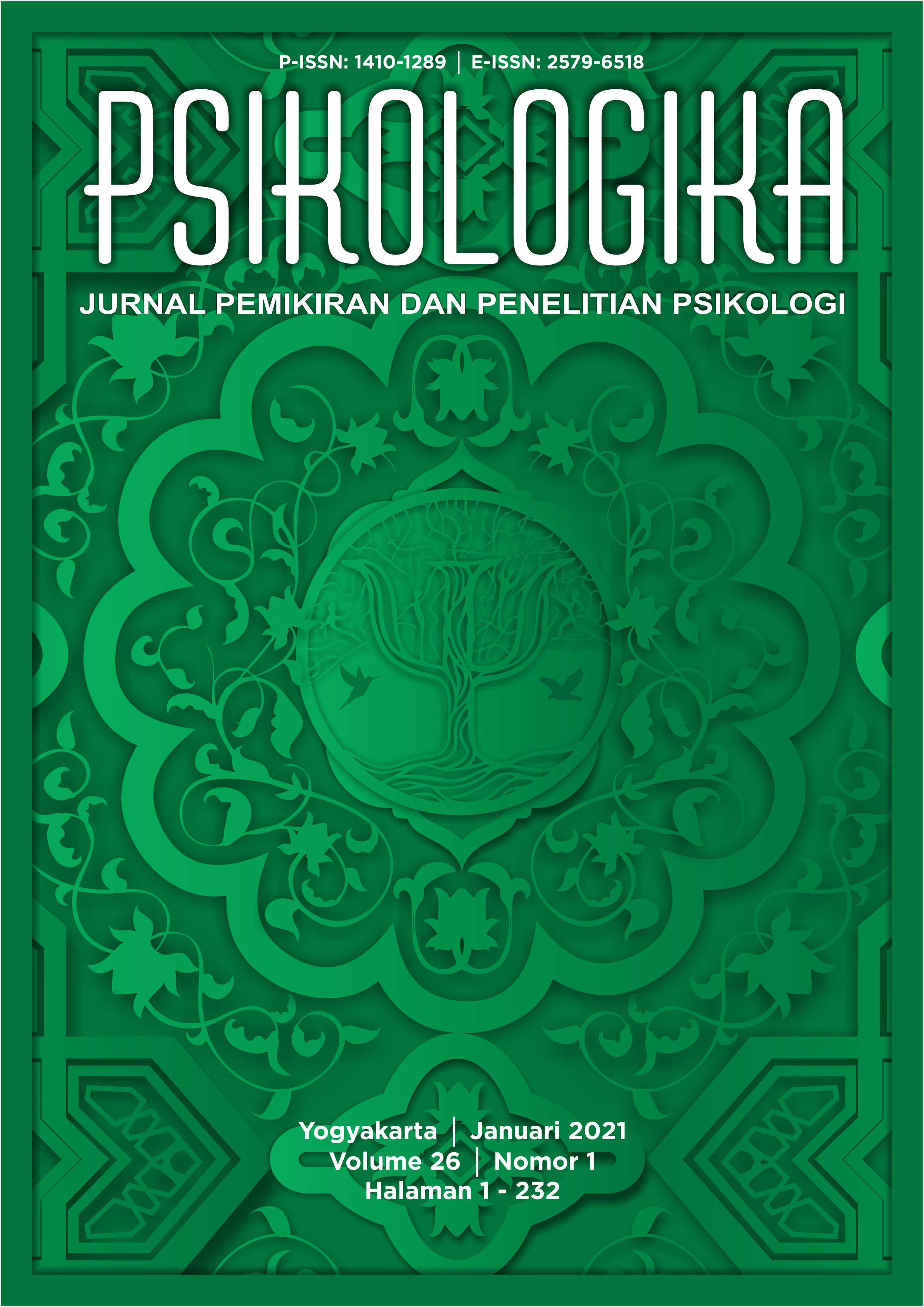Main Article Content
Abstract
Prevalensi gangguan kecemasan di Indonesia terus meningkat tiap tahunnya. Hal ini perlu menjadi perhatian khusus, terutama saat menghadapi ketidakpastian selama masa pandemic ini. Acceptance and Commitment Therapy (ACT) adalah salah satu gelombang ketiga dari Coginitive Behaviour Therapy (CBT), yang biasa digunakan untuk menangani gangguan kecemasan. Di dalam penelitian ini, peneliti ingin melihat efektivitas dari ACT terhadap penurunan tingkat Generalized Anxiety Disorder (GAD) yang diukur dengan menggunakan Generalized Anxiety Disorder-7 (GAD-7), Geriatic Anxiety Inventory (GAI), dan Beck Anxiety Inventory (BAI). Metode yang digunakan adalah metaanalisis dengan statdirect trial version 2.0. Penelitian ini melibatkan 17 jurnal eksperimen mengenai ACT dan GAD (n kelompok eksperimen = 574; n kelompok kontrol = 513). Pengukuran ACT dan GAD dilihat dari random effect size (I2 = 83.3%), tanpa adanya bias publikasi (-3.88). Hasil yang didapatkan ialah ACT masih cukup efektif untuk menurunkan tingkat GAD (d= -.66; medium effect size). Peneliti menyimpulkan bahwa ACT akan menjadi lebih efektif jika ada pendampingan dari intervensi lain. Adapun saran dari peneliti adalah untuk melakukan replikasi penelitian guna memperbanyak referensi terkait efektivitas ACT.
Kata Kunci: Acceptance and Commitment Therapy, gangguan kecemasan umum, metaanalisis
Meta-Analysis on The Effectiveness of Acceptance and Commitment Therapy for Dealing with Generalized Anxiety Disorder
Abstract
The prevalence of anxiety disorder in Indonesia increases significantly every year. It is worth special attention, especially in facing the uncertainty during pandemic. Acceptance and Commitment Therapy (ACT) is one of the third-wave cognitive behavior therapy (CBT), usually used for anxiety disorder treatment. In this research, I want to examine the effectiveness of Acceptance and Commitment Therapy (ACT) to decrease the level of Generalized Anxiety Disorder (GAD), taking General Anxiety Disorder-7 (GAD-7), Geriatic Anxiety Inventory (GAI), and Beck Anxiety Inventory (BAI), as the standard. It uses a meta-analysis techniques processed by statdirect trial version 2.0. It involves 17 experimental journals of ACT and GAD (n experiment group = 574; n control group = 513). The assessment of ACT and GAD bases itself on random effect size (I2 = 83.3%), without any publication bias (-3.88). The result shows that ACT is still effective to decrease the level of GAD (d= -.66; medium effect size). The result concludes that the ACT needs the assistance from other interventions. It also suggests research replication to multiply the references related to the effectiveness of ACT.
Keywords: Acceptance and Commitment Therapy, generalized anxiety disorder, meta-analysis
Article Details
Authors who publish with this journal agree to the following terms:
- Authors retain copyright and grant the journal right of first publication with the work simultaneously licensed under a Creative Commons Attribution-ShareAlike 4.0 International License that allows others to share the work with an acknowledgment of the work's authorship and initial publication in this journal.
- Authors are able to enter into separate, additional contractual arrangements for the non-exclusive distribution of the journal's published version of the work (e.g., post it to an institutional repository or publish it in a book), with an acknowledgment of its initial publication in this journal.
- Authors are permitted and encouraged to post their work online (e.g., in institutional repositories or on their website) prior to and during the submission process, as it can lead to productive exchanges, as well as earlier and greater citation of published work (See The Effect of Open Access).




